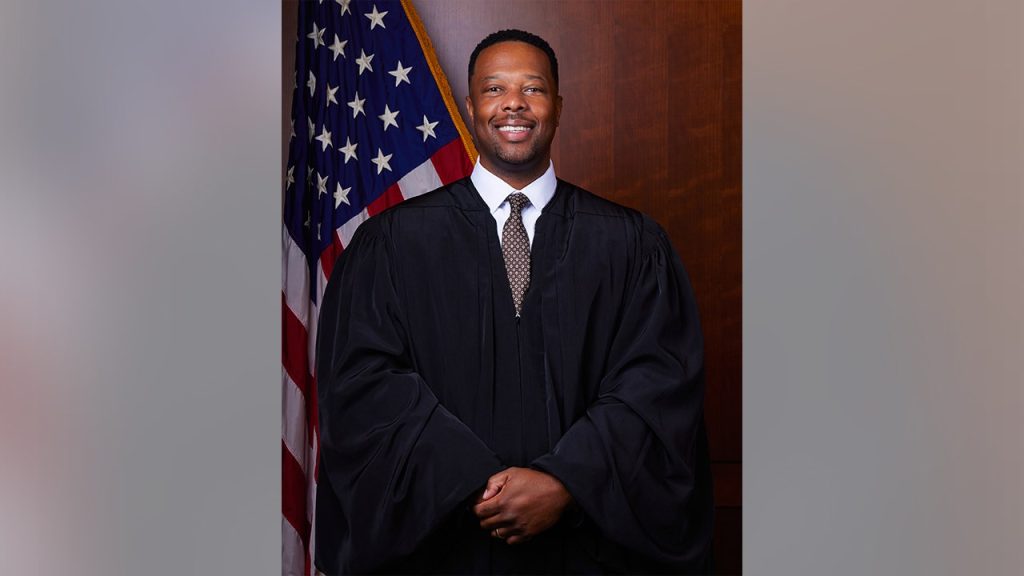In a significant legal ruling, a federal judge has mandated the resumption of the resettlement of 12,000 refugees into the United States, directly opposing a Trump administration directive that had aimed to limit refugee admissions. U.S. District Judge Jamal Whitehead, appointed by former President Joe Biden, articulated that the government’s attempt to rewrite judicial orders will not be tolerated, emphasizing adherence to both statutory and constitutional law. This ruling may mark a pivotal moment in U.S. immigration policy as it responds to ongoing legal and humanitarian issues surrounding refugee admissions.
| Article Subheadings |
|---|
| 1) Overview of the Court’s Decision |
| 2) Implications for Refugee Admissions |
| 3) Government Response and Future Actions |
| 4) Historical Context of Refugee Policies |
| 5) Broader Social Impact on Refugees |
Overview of the Court’s Decision
The federal ruling was issued on Monday, amidst considerable opposition from the Trump administration, which argued that it should only be responsible for processing a mere 160 refugees. Judge Whitehead countered this assertion, stating unequivocally, “This Court will not entertain the Government’s result-oriented rewriting of a judicial order that clearly says what it says.” His ruling not only demands the immediate resettlement of 12,000 individuals but also signals a greater commitment to uphold established laws governing refugee admissions. The action underscores the judiciary’s role in shaping immigration policy, especially in challenging executive actions.
Implications for Refugee Admissions
This ruling has profound implications for the U.S. refugee admissions program, which has been under severe scrutiny and facing drastic reductions under the previous administration. By reinstating the resettlement of thousands of refugees, the court decision emphasizes the necessity for adherence to both domestic and international obligations regarding human rights. It potentially strengthens the pathways for humanitarian assistance and legal protections for those fleeing persecution. The decision may also impact public opinion and political discourse regarding immigration, as advocates for refugee rights see this as a major victory in the struggle for what they deem as legal and moral obligations.
Government Response and Future Actions
In response to the ruling, officials within the Trump administration have indicated intentions to appeal the decision. They argue that the logistics of rapidly processing such a large number of refugees present significant operational challenges. The administration may seek to clarify or modify the requirements set forth by the court. As the legal battles unfold, the administration’s response will be crucial to understanding how significant changes in resettlement policies may take shape in the coming months. Such appeals could also set the stage for further legal scrutiny in the federal courts, where judges have recently shown a willingness to uphold the rights of refugees against executive encroachments on judicial authority.
Historical Context of Refugee Policies
The landscape of U.S. refugee policy has historically been characterized by fluctuating priorities, influenced by political climates and public sentiment. The current ruling stands against a backdrop of significant reductions in refugee admissions, particularly post-2017, under executive directives that sought to curb immigration from several countries. Understanding this history helps to contextualize the judge’s decision not only as a legal response but also as a counterbalance to trends in U.S. immigration policy aimed at restricting refugee access. This ruling reflects an ongoing struggle between humanitarian commitments and national policy preferences that have emerged in recent years.
Broader Social Impact on Refugees
The implications of the ruling extend beyond legal texts. The resettlement of refugees intricately connects to broader societal debates surrounding multiculturalism, human rights, and the roles of the United States on the global stage. The reinstatement of a robust refugee admissions program may contribute to positive social outcomes, not only aiding those in need but also enriching communities that receive them. Furthermore, this court decision comes at a time of rising tensions and increased visibility for issues related to immigration and refugee rights, highlighting the impact of legal frameworks on the lives of vulnerable populations seeking safety and stability.
| No. | Key Points |
|---|---|
| 1 | A federal judge ordered the Trump administration to resume resettling 12,000 refugees immediately. |
| 2 | Judge Jamal Whitehead emphasized the importance of adhering to judicial and constitutional laws. |
| 3 | The Trump administration plans to appeal this ruling, citing operational challenges in processing refugees. |
| 4 | Past policies have significantly limited refugee admissions, impacting thousands who seek safety in the U.S. |
| 5 | The ruling may influence public opinion on immigration and deepen discussions about refugee rights. |
Summary
The federal ruling requiring the resettlement of 12,000 refugees into the United States is a landmark decision that illustrates the ongoing tensions between judicial authority and executive powers concerning immigration policy. It reinforces the importance of legal adherence in navigating complex humanitarian issues and sets a precedent that may influence future refugee resettlement strategies. As the case progresses, its impact will likely resonate through both legal and social landscapes, shaping the conversation around immigration in the United States for the near future.
Frequently Asked Questions
Question: What prompted the federal court ruling on refugee resettlement?
The ruling was prompted by a challenge to the Trump administration’s executive order that sought to limit refugee admissions. The judge found that the government’s actions violated statutory and constitutional law.
Question: How many refugees will be resettled under the court’s order?
The court ordered the immediate resettlement of 12,000 refugees into the United States.
Question: What are the potential implications of this ruling on future immigration policies?
The ruling could pave the way for increased scrutiny of executive actions related to immigration, encouraging more legal challenges while potentially restoring confidence in humanitarian commitments toward refugees.


